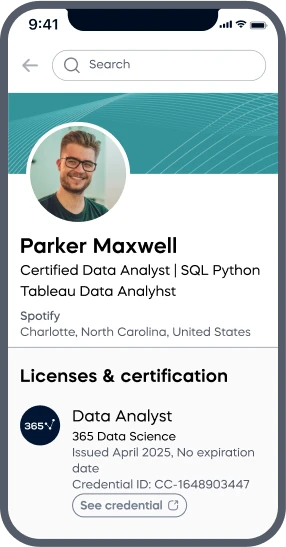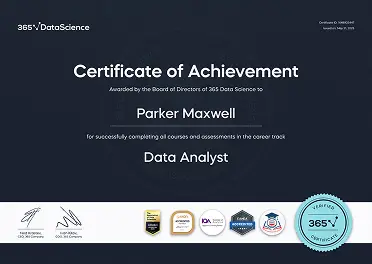Lee McFarling
See all reviews
Boost your productivity with ChatGPT Advanced Data Analysis: Solve data science problems with ChatGPT






Skill level:
Duration:
CPE credits:
Accredited

Bringing real-world expertise from leading global companies
Master's degree, Bioinformatics
Description
Curriculum
Free lessons

1.1 Introduction to the course
2 min

1.2 Traditional data science methods and the role of ChatGPT
5 min

1.3 How to install ChatGPT
2 min

1.4 How ChatGPT can boost your productivity
2 min

2.1 Data Preprocessing with ChatGPT
5 min

2.2 First attempt at machine learning with ChatGPT
4 min
#1 most reviewed
9 in 10
people walk away career-ready
$29,000
average salary increase
ACCREDITED certificates
Craft a resume and LinkedIn profile you’re proud of—featuring certificates recognized by leading global
institutions.
Earn CPE-accredited credentials that showcase your dedication, growth, and essential skills—the qualities
employers value most.





Certificates are included with the Self-study learning plan.


How it WORKS